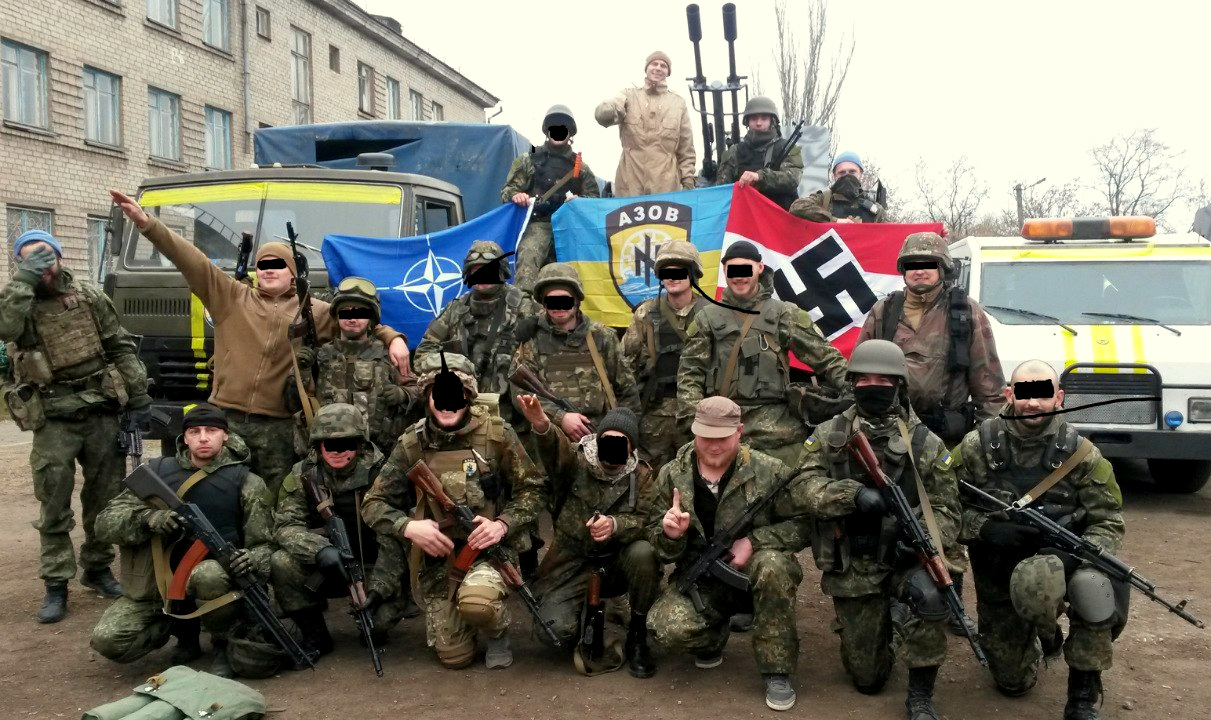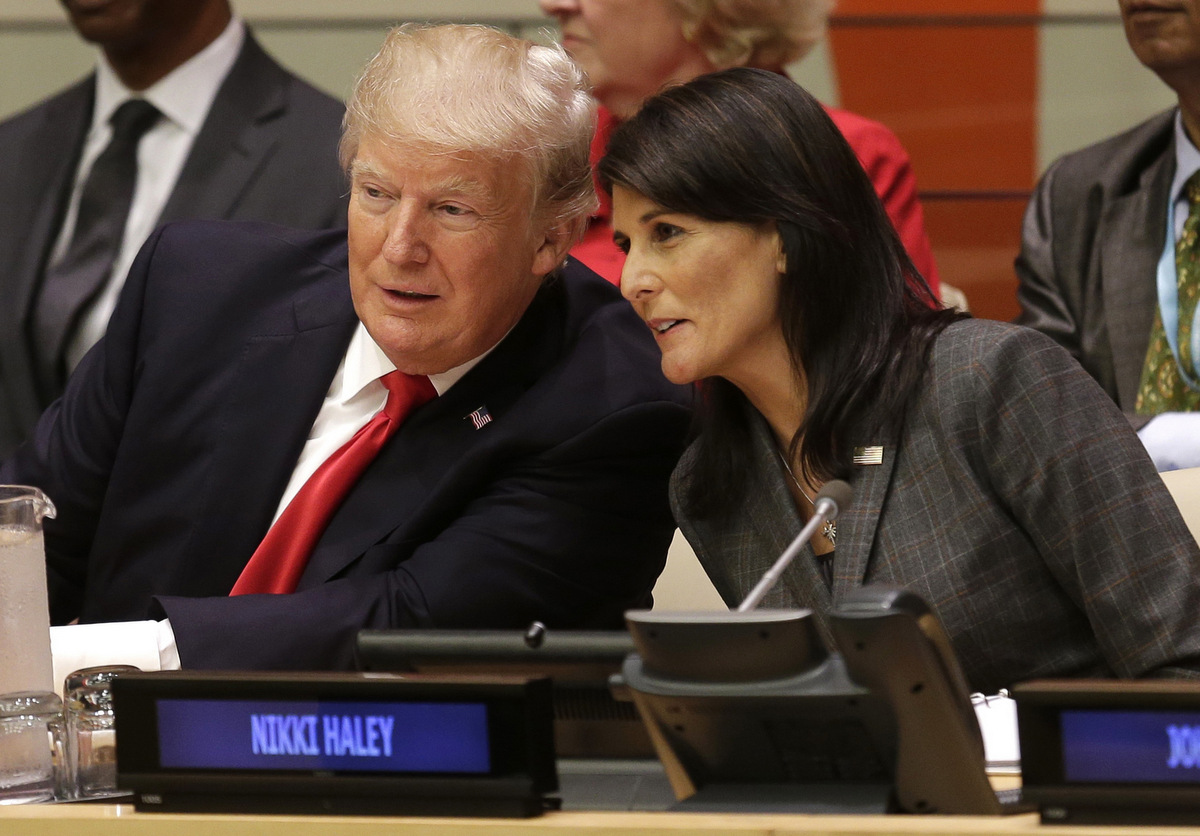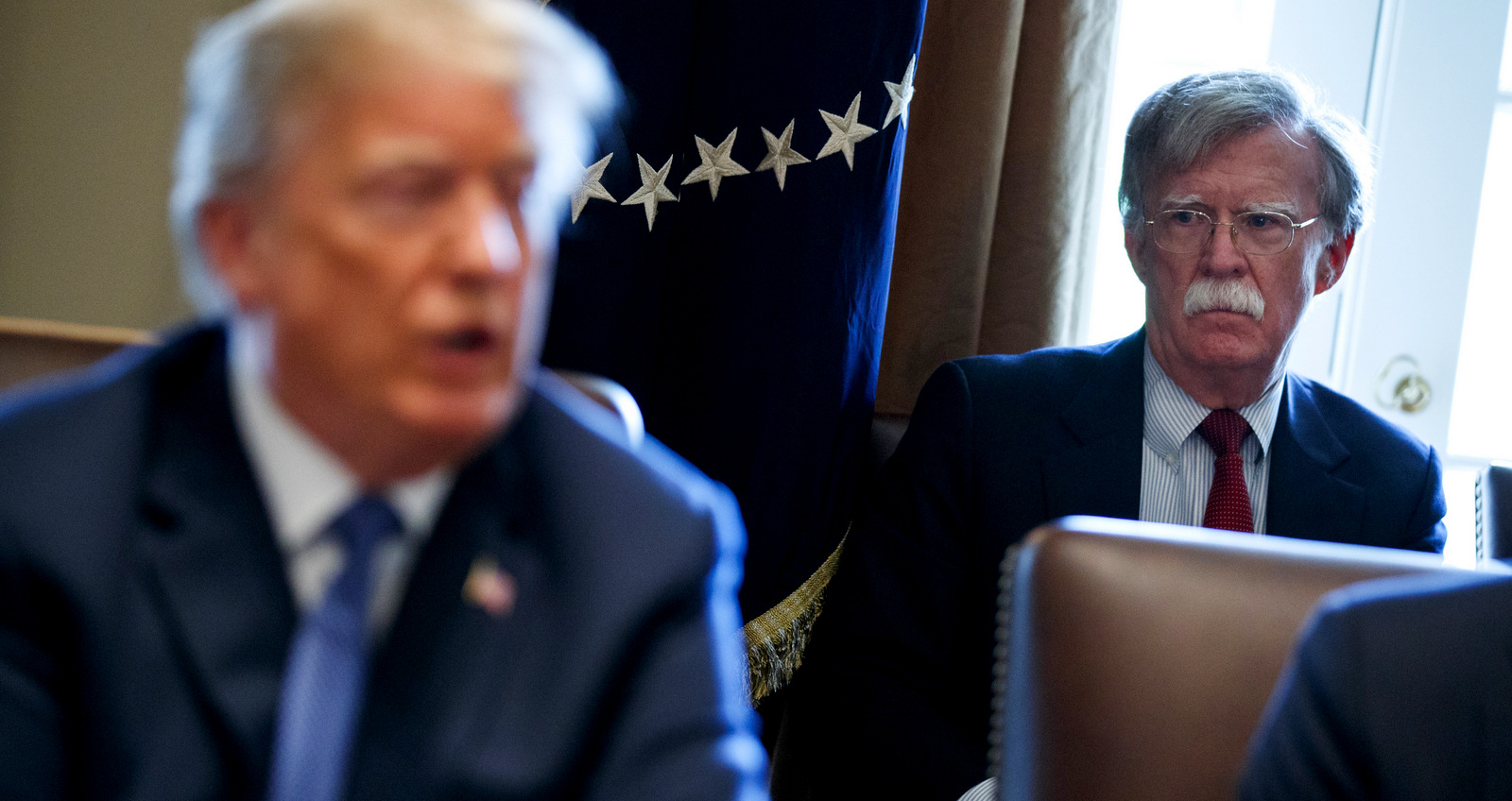What happens when an unthinkable war meets an unbeatable case of war fever? Thanks to Russia-gate, unsubstantiated reports about the use of poison gas in Syria, and a slew of similar factoids and pseudo-scandals, the world may soon find out.
In saner times, including during the Cold War at even its most heated, political leaders knew not to push a conflict with a rival nuclear power too far. After all, what was the point of getting into a fight in which everyone would lose?
Cooler heads thus prevailed in Washington while more excitable sorts were shipped off to where they could do no harm. This is what kept the peace during the U-2 affair, the Berlin Wall, and the Cuban missile crisis and what promised to continue doing so even after the advent of American “unipolarity” in 1989-92.
But that was then. Today, the question is no longer how to avoid a fight that can only lead to catastrophe, but how to avoid a showdown with a country that “in the past four years has annexed Crimea, intervened in eastern Ukraine, sought to influence the American election in 2016, allegedly poisoned a former Russian spy living in Britain and propped up the murderous government of President Bashar al-Assad in Syria,” to quote the bill of indictment in a recent front-page article in The New York Times.
Given that the list of alleged atrocities expands with virtually each passing week, the answer, increasingly, is: no way, no how. Since Russia is bent on spreading “conflict and discord” throughout the west – if only in the eyes of the U.S., that is – confrontation grows more and more likely.
A Very American Coup
This is despite the fact that the offenses cited by the Times are each more complex or dubious than the “newspaper of record” is willing to concede. The annexation of the Crimea, for instance, was a response to a US-financed, neo-Nazi-spearheaded coup in Kiev in February 2014 that caused the rickety Ukrainian state to collapse and sent Russophones in the east fleeing for protection into the arms of Moscow. After investing more than $5 billion to steer Ukraine in such a disastrous direction according to then-Assistant Secretary of State Victoria Nuland, the US blamed Russia for the consequences. (See quote beginning at 7:42.) As for charges of interference in the 2016 election, the Times itself noted back in January 2017 that the formal CIA-FBI-NSA “assessment” blaming the Kremlin was notably bereft of factual back-up.

As the paper put it:
[T]he declassified report contained no information about how the agencies had collected their data or had come to their conclusions. So it is bound to be attacked by skeptics and by partisans of Mr. Trump, who see the review as a political effort to impugn the legitimacy of his election.”
Quite right. But now evidence-free assertions are accepted as fact while anyone who says otherwise is ignored or shouted down. Questions linger with regard to the March 4 poisoning of Sergei and Yulia Skripal, most notably why a supposedly ultra-powerful nerve agent would not take effect for more than seven hours. (Someone supposedly smeared the nerve agent on the front door of Sergei’s home in Salisbury, England, which he and his daughter left around nine in the morning. Yet it was not until 4:15 p.m. that they were found incapacitated on a park bench after visiting a pub and eating at a local restaurant.)
As for “the murderous government of President Bashar al-Assad,” such talk would be silly if the consequences weren’t so dire. After all, it wasn’t Assad who flooded Syria with tens of thousands of jihadis bent on massacring Christian, Druse, Alawites, and secularists. To the contrary, it was the U.S., Turkey, Saudi Arabia, and the other Arab Gulf states. As a now declassified Defense Intelligence Agency report noted back in August 2012:
- “The Salafist[s], the Muslim Brotherhood, and AQI [i.e. Al Qaeda in Iraq] are the major forces driving the insurgency”;
- “The West, Gulf countries, and Turkey support the [rebel] opposition”;
- “If the situation unravels further, there is the possibility of establishing a declared or undeclared Salafist principality in eastern Syria”;
- “…[T]his is exactly what the supporting powers to the opposition [i.e. the US, Turkey, and the gulf states] want in order to isolate the Syrian regime, which is considered the strategic depth of the Shia expansion….”
A Sectarian War
In other words, the US and its Sunni Arab allies launched a sectarian war against the Alawite-backed Syrian regime with the full knowledge that an Al Qaeda state in eastern Syria might well be the result. Yet now they blame Assad for defending himself against the Salafist onslaught and Russia for helping him. It is a case of launching a neo-medieval sectarian war and then crying foul when the other side dares to fight back.
One would think that cooler heads might inject a note of sanity before things get completely out of hand. But the opposite seems to be the case. The more temperatures rise, the more congressmen, journalists, think-tank experts, and other hangers-on conclude that it is advantageous to jump on the bandwagon and drive passions up even more. Pro-war frenzy leads to more of the same. The more reason is needed, the scarcer it becomes.
Indeed, it sometimes seems that the only halfway sane person left in Washington is Donald Trump, who, according to a strange report in Sunday’s Washington Post, is fighting a desperate rear-guard action against neocons bent on ratcheting up tensions to ever higher levels.
Reporters Greg Jaffe, John Hudson, and Philip Rucker described a bizarre scene at Trump’s Mar-a-Lago Florida resort last month in which aides were only able to persuade the president to expel sixty Russian diplomats in retaliation for the Skripal poisoning by promising him that allies would toss out an equal number in Europe. When France and Germany only expelled four Russians each, Trump felt double-crossed. “I don’t care about the total,” he reportedly screamed when the aides tried to explain that the number expelled by all European nations would eventually approach the U.S. figure. “There were curse words,” one official told the Post, “a lot of curse words.”
Similarly, when Congress approved a new round of anti-Russian sanctions in July, the article says it took aides four days to persuade Trump to sign the bill even though it had cleared with a veto-proof majority that made it a virtual fait accompli. The Post said the same thing occurred when aides tried to convince him to sell anti-tank missiles to Ukraine for use against pro-Russian separatists. “Why is this our problem?” he reportedly asked. “Why not let the Europeans deal with Ukraine?” When CIA Director Mike Pompeo, UN Ambassador Nikki Haley, and Defense Secretary Jim Mattis added their voices to the chorus, all the president could do was whine, “I just want peace.”
Everyone Agreed–Except Trump
Of course, when Donald Trump is the sole remaining voice of reason, then we’re really in trouble. The infighting escalated even further on Monday after Haley vowed to slap still more sanctions on Russia for the crime of backing Assad. “They have done nothing but brutalize their people and destroy their land, all in the name of power,” she said of the Baathists on CBS News’s “Face the Nation.” So Russia would have to pay the price.

Everyone agreed, Republicans, Democrats, and the corporate media – everyone, that is, except Trump. Defying his neocon captors, he undercut Haley by declaring that sanctions would not be forthcoming after all. White House spokesperson Sarah Huckabee Sanders was left to gamely assert that “the president has been clear that he’s going to be tough on Russia, but at the same time he’d still like to have a good relationship with them.”
Times columnist Michelle Goldberg was so flabbergasted by Trump’s about-face that she wondered whether reports that Putin was using a secret “pee tape” to force him into line might not be true after all.
But of course – who else would want an end to hostilities with Russia other than a crazy man or someone under duress? War with a nuclear power is something that no sane person really wants to avoid, right?
U.S. foreign policy is caught in a powerful contradiction. A military showdown with a fellow nuclear power is unthinkable. Yet pausing for a moment to consider where all this madness is leading is out of the question. Two forces are colliding, war on one hand and a general inability to think things through in a clear-headed way on the other.
It’s a case of a herd of independent minds stampeding over a cliff – not because someone is forcing them to, but because they don’t know how to stop.
Top Photo | National security adviser John Bolton listens as President Donald Trump speaks during a cabinet meeting at the White House, April 9, 2018, in Washington. (AP/Evan Vucci)
Daniel Lazare is the author of The Frozen Republic: How the Constitution Is Paralyzing Democracy (Harcourt Brace, 1996) and other books about American politics. He has written for a wide variety of publications from The Nation to Le Monde Diplomatique, and his articles about the Middle East, terrorism, Eastern Europe, and other topics appear regularly on such websites as Jacobin and The American Conservative.


